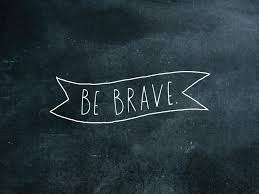It’s a great time to talk about our immune health! The winter is a time where we’re all trying to avoid getting sick. Whether you go in to the office to work, have kids at home, or are simply waiting in line at the grocery store, there is usually someone within sneezing or coughing distance.
Here are a few key points to help understand what affects your immune system, how to best prevent colds and flus, and how to overcome getting sick if it catches up with you.
Arguably, the most important part of supporting immune health is decreasing factors that can burden the immune system and use up crucial energy needed to wage an immune response. The immune system can be negatively affected by many things.
Stress
Stress, and cortisol specifically, can directly inhibit our immune system’s ability to respond to inflammation and pathogens.
Poor sleep
Insufficient time for rest and recovery.
Poor diet
Sugar, processed foods, and excess do our bodies more harm than good. They contribute no nutrient value, and instead create additional work for our body in order to neutralize harmful chemicals and eliminate what are bodies don't need. Sometimes even healthy foods are not well metabolized by certain people, so it’s important to listen to our individual bodies, and take note of what works for us.
Toxicity
Air pollutants, chemicals in foods and products, pesticides and preservatives, drugs and alcohol, all require effective detoxification in order to avoid long term damage to our cells. The more burdened our cells are, the less effective this detoxification process can become.
Inflammation
Chronic inflammation taxes our immune system on a regular basis, leaving it weakened when an immune response is needed. Diet is a key aspect of controlling this.
All these potential burdens add up and leave us more susceptible to getting sick. We need a healthy immune system to fight off potential infections, including bacteria and viruses. Bacteria and viruses are slightly different in how they act in the body, and therefore may require different approaches to treating them.
Viruses are typically self-limiting, and need to run their course. They can’t survive on their own, and tend to reprogram our healthy cells to use for their own benefit. Antimicrobials (including antibiotics) are not effective against viruses, but a strong immune system helps!
Bacteria are most often effectively eliminated with the use of herbal antimicrobials, or antibiotics when needed. The appropriate intervention depends on severity, as sometimes our body can overcome these infections on their own as well.
In either case, but particularly with viruses, the best way to shorten duration and resolve symptoms is to improve our immune function. Here are a few ways, we can do that:
Optimize lymphatic system
Exercise improves circulation by increasing heart rate, as well as physically moving the tissues. Massage therapy is another great way to move the lymphatics and support drainage. Adequate hydration is what allows substances to move through the lymphatic system efficiently, including nutrients to support function, as well as wastes for elimination.
Reduce stress
There are many tools to help relax the nervous system, and calm the mind. Remember to check in with yourself, and apply your best self-care tools when you feel the tension creeping up. This might mean setting better boundaries for yourself or those around you, incorporating a mindfulness practice, seeing a therapist, or other health practitioner.
Optimize your sleep
This is an extremely important time for the lymphatic system, particularly our glymphatic system, which nourishes and cleans up our brain tissue. Address the underlying issues that may be preventing you from getting a good sleep. This may mean looking at stress, hormone balance, blood sugar regulation, or optimizing your bedtime routine.
Nutrition
Our body requires vitamins and minerals to carry out the multitude of reactions in the body that maintain its functions. Prioritize nutrient dense foods, that are easy to digest. When you are sick or run down, your body needs more support. When used appropriately, supplements are a powerful additional tool for assisting the body. It is important to consult with your physician regarding which supplements may be best for you, but here are a few of my favorites:
Vitamin D. Considered both a fat-soluble vitamin, and a hormone. Important in decreasing risk of auto-immunity as well as infections.
Reishi. A powerful medicinal mushroom, that supports both the nervous system and immune system.
Probiotics. Contribute to healthy gut flora that is intricately tied to our immune system. When healthy flora is adequate in the gut, it makes it hard for unhealthy bacteria to inhabit it.
Vitamin C. A water soluble nutrient, that helps protect healthy cells by stimulating production of white blood cells. WBCs defend against bacteria, viruses, and parasites.
Vitamin A. A fat soluble nutrient, and potent antioxidant. It works to strengthen the integrity of mucous membranes, and the immune response at the point of entry for pathogens. Vitamin A stimulates antibody response as needed.
Zinc. An essential trace mineral that the body doesn’t make, therefore we must get it from out diet. It is important for both development of immune cells, and function of our immune system.
I hope this helps to give a few options to assist you in optimizing your health over the winter, and feeling your best! If you need further support, don’t hesitate to book in with me for a more customized plan. Happy Holidays!
- Dr. Brett Simpson, ND





















